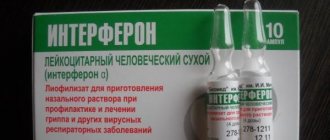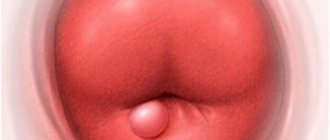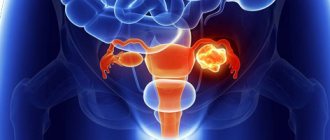Itching of the labia due to excessive or poor hygiene
The most common reason that itching may occur in the labia is improper care of intimate areas. This may be due to simple negligence or due to ignorance. There are women who believe that there is no need at all for washing the intimate area. But experts advise washing intimate parts twice a day, and also after sexual intercourse.
During menstruation, special care is required. It is necessary to change your tampon or pad more often and be sure to wash yourself every time. Hygiene products that absorb blood during menstruation provide a good environment for the spread of harmful microbes. And they very often cause inflammation and itching of the genital organs.
It is best to choose linen made from 100% cotton . But many girls prefer to wear synthetic beautiful panties. But they are good only for their appearance, but they do not allow moisture and air to pass through, they can cause redness, itching, and also rub the bikini area.
The same can be said about scented sanitary pads. They can cause allergies due to the content of various aromatic impurities in their composition. In this case, redness and itching are signs of an allergy.
Another cause of itching may be excessive use of various deodorants , sprays and antibacterial soaps, as well as vaginal douching.
If the cause of itching of the labia is improper hygiene, then you can get rid of it very simply. To do this, you should wear only linen or cotton underwear, avoid unnecessary cosmetics, and streamline the care of your bikini area. Just take proper care of your intimate parts and use baths with herbs such as calendula, chamomile and string.
Pathological conditions
If mild irritation goes away quickly and, in most cases, without the use of medications, then diseases of various etiologies require professional treatment after proper diagnosis.
Allergies and dermatitis
The disease is provoked by local and systemic factors. The first group includes the chemical components of washing powder, intimate hygiene gel, creams, lubricants, low-quality tampons and pads, and condoms.
Systemic factors include pharmaceuticals taken orally by injection or tablets, foods, and inhaled chemicals. Most often, mucous membranes react to irritants. Therefore, if the clitoris is swollen and itchy, this is not a reason to panic about a possible sexually transmitted infection.
Accompanying allergy symptoms are small pimples in the intimate area and increased secretion production.
Stress
Irritation of the nerve endings does not cause pain due to mild impulses. But the itching is quite noticeable and sometimes difficult to bear. The intensity of symptoms depends on the woman’s body and the severity of the experience.
Under severe stress, tangible discomfort acts as a catalyst and even has a positive effect. For some time, the woman is distracted from impending unresolved problems in order to get rid of the discomfort that has arisen in the intimate area.
This is an inflammatory process in which additional symptoms include white or greenish discharge, pain when urinating, and swelling of the genitals.
The pathology occurs in both women and children. The cause of inflammation in girls is most often poor hygiene, hypothermia, and injury. In adults, promiscuity and abortion should be added to this.
Pubic lice
Infection occurs through intimate intimacy or everyday contact with a sick person. You can identify the problem yourself by finding parasites or bite marks. Apart from severe itching and red dots, there are usually no other symptoms. Severe scratching causes swelling on the outer lips and pubic area.
In the genital area, various microorganisms create a protective barrier against infection. If the labia minora are swollen and the labia majora are itching, the balance may be imbalanced and beneficial bacteria have been replaced by pathogenic ones.
Dysbacteriosis can be caused by poor nutrition, insufficient hygiene, and stress.
Different infections can be expressed in the same way: itching, yellowish or greenish discharge, burning sensation when urinating, weakness, fever. Some sexually transmitted diseases are asymptomatic and pose a serious threat of inflammation of the urethra, cervix, and uterus.
Discomfort in the intimate area in women can also manifest itself with proper nutrition, careful hygiene, and adherence to a culture of sexual relations. It's all due to hormonal changes during a certain period.
- During pregnancy, blood supply to tissues increases, and expectant mothers are perplexed as to why the labia are swollen or itchy, if the test results are good and all recommendations are followed. The sensitivity of the mucous membrane simply increases, manifesting itself in an acute reaction even to the usual gel.
- During menopause, estrogen production decreases, dryness and burning appear.
- Before menstruation, blood supply to the mucous membrane increases, and sudden discomfort also passes quickly. This phenomenon is cyclical.
Other reasons
There are a lot of additional factors that cause discomfort in the intimate area in women. Some are completely harmless, others are dangerous. Only the main ones can be mentioned.
- Skin diseases. A person has different areas of the body that peel and itch. Genitals are no exception.
- Pathologies of internal organs and endocrine diseases. In diabetes mellitus, cracks appear on the labia due to increased dryness. When irritated by urine, the itching intensifies. A woman feels no less discomfort with diseases of the liver, kidneys, heart, and intestinal dysbiosis.
- Bartholinitis. The pathology at the initial stage is manifested by swelling and itching. Therefore, if the labia is swollen and itchy on one side, it may be an inflammation of the Bartholin gland.
- Genital herpes. The infection can “sleep” in the body for a long time and manifest itself under favorable conditions: decreased immunity, lack of vitamins, hypothermia, colds.
The main symptoms are grouped watery blisters, internal twitching and severe itching.
- Tumor. The formation of cancer cells may not be suspicious at first. And the main problem is that women try to cope with mild itching on their own instead of getting examined.
- Helminths. Worms can enter the labia from the anus and leave waste products.
- Fungal infections. The main symptoms of the pathology are swelling of the labia, itching, and copious white discharge with a sour odor.
https://youtu.be/BoHsfg5IUyY
Diseases of the labia
The cause of itching of the female genital organs can be a variety of diseases. These include:
- Genital herpes is a sexually transmitted disease caused by a member of the herpevirus family. A woman can become infected with genital herpes during oral, anal, or regular sexual intercourse. When the disease begins to manifest itself, the labia minora and majora, cervix and vagina begin to itch. Treatment is carried out with special medications that destroy the virus and strengthen women's immunity.
- Candidiasis (thrush) is a disease that causes unbearable burning and itching. A sour-smelling white discharge appears from the vagina. Thrush is caused by yeast-like fungi, which are found in the normal microflora of the vagina. With hormonal imbalance, poor diet, decreased immunity or stress, such fungi begin to spread and lead to illness. Thrush causes itching after sex. The treatment is carried out by a specialist for both partners at once, based on the test results. Antifungal drugs are prescribed.
- Trichomoniasis is a sexually transmitted disease that is sexually transmitted. Signs are: sharp and unpleasant-smelling white discharge, burning and itching of the labia minora and majora. A specialist can diagnose the disease only after conducting a thorough examination and reviewing all test results. Treatment will be effective only when both partners become healthier. During treatment, any sexual intercourse is contraindicated.
- Gardnerellosis is a disease during which gardnerella in the vagina and lactobacilli balance are disrupted. The main symptoms are: burning sensation when urinating, itching of the labia, copious white discharge. As soon as signs of this disease appear, you must immediately run to the doctor. It is better not to self-medicate. When the doctor makes an accurate diagnosis, he will prescribe antibacterial suppositories or gels. When this method is completed effectively, lactobacilli are introduced into the vagina and means are prescribed to strengthen the immune system. If the treatment is carried out correctly (you cannot have sex during the treatment period), then you will get rid of this problem.
- Athlete's foot - this disease can be contracted in a public place if you do not use personal hygiene products. The disease manifests itself as itching of the labia minora and labia majora, as well as the appearance of small spots, in the middle of which an inflammatory focus is visible. The specialist makes a diagnosis after examining the patient and by microscopic examination of scales taken from the affected areas. Treatment is carried out with medications and personal hygiene.
- Endometritis is inflammation in the inner lining of the uterus. The cause of the disease is infection in the uterus. Signs: expansion and itching of the labia, purulent discharge, pain in the lower abdomen as during menstruation. Treatment consists of taking antibacterial agents. Sexual activities are prohibited.
- Kraurosis of the vulva and vagina - this disease affects women of more mature age. Its manifestations are swelling of the lips, changes in the clitoris, dryness and itching.
- Urogenital fistula - this disease manifests itself after childbirth, cesarean section, and some types of urological and gynecological diseases. Causes inflammation in the vagina. It manifests itself as severe itching.
- Allergy to sperm . This may be the cause of scratching of the labia minora and majora very rarely. Allergens can be sperm protein, foods or medications that a man uses. They can only be identified through special research.
- Tumors , benign or malignant, can also cause itching of the labia minora and majora.
Allergic manifestations in the intimate area: contact vulvovaginitis
• debilitating itching and burning of the labia, including itching and redness of the labia minora; • rash like urticaria on the skin of the intimate area, in the inguinal folds; • itching of the clitoris;
Such a reaction can be obtained with individual hypersensitivity to latex, fragrances, panty liners; gels for intimate hygiene, contraceptives for topical use.
What to do if your labia itch due to allergies: how to treat
Avoiding contact with a possible irritant.
Taking antihistamines, for example, Claritin, Clarotadine.
Calcium gluconate 10 ml intravenously or intramuscularly once a day for 10 days.
Afloderm ointment in a thin layer 2 times a day, 5-7 days.
Enterosorbents: Polysorb, Polyphepan, Enterosgel.
Baths with anti-inflammatory herbs.
A diet excluding spicy, sweet, sour, salty, alcohol, etc.
Similar measures are used when the labia is bitten by insects.
It is important to relieve allergic symptoms and pain.
Upon careful examination, you can see a spot on the labia from a bite. If the culprit of the delicate problem is a bee or wasp, the stinger must be carefully removed.
A bath of baking soda at room temperature will significantly reduce swelling and pain. Apply Fenistil gel to the bite site.
Among the main causes of itching in the perineum are diseases of the genital organs, such as:
- Genital herpes. It usually occurs against the background of a cold, due to hypothermia. First, redness appears, then burning, itching of the labia minora and their swelling appear. The final stage is manifested by rashes in the form of blisters.
- Candidiasis (thrush). A disease of fungal origin. At the initial stage, redness occurs, then itching and burning appear. It is noticeable that the labia are swollen. These symptoms are accompanied by a characteristic whitish vaginal discharge in the form of lumps of cottage cheese with an unpleasant odor. There is pain when urinating and during sex.
- Inguinal athlete's foot. The infection is acquired through the use of shared intimate hygiene items (soap, oilcloth, etc.). You can catch this disease in a public bath or swimming pool. Localized in the groin area. The disease begins with the appearance of small spots around the labia, no more than 1 cm in size. In the center of each spot, a focus of inflammation is noticeable. Gradually, the redness grows, forming a ring, the outer diameter of which can reach 10 cm. The central part inside the ring is cleared. The edges of the spot swell, forming a ridge. Small blisters of inflammation are scattered on it in a chaotic manner, which are very itchy.
- Gardnerellosis. The infection is spread through sexual contact. Main symptoms: the labia minora are swollen and itchy;
- gray mucus that smells like fish is released from the vagina.
Choosing the right treatment regimen is the key to successfully eliminating itching in the perineum. Medicines to eliminate itching should be selected and prescribed by the attending physician, taking into account certain factors.
- You should wash yourself at least twice a day, using a warm infusion of celandine herbs, string, chamomile or a solution of furatsilin (a tablet in a glass of water). You need to give up toilet soap for a while.
- If the vagina is excessively dry, you should use special lubricants or sprays with natural extracts.
- During treatment, it is better to abstain from sex so as not to irritate the inflamed genitals.
- You should review your menu, excluding hot seasonings, alcohol (including light wines), and yeast products.
Folk remedies provide effective assistance in eliminating itching and burning of the genitals. They complement the main drug therapy. They are recommended to eliminate unpleasant symptoms after childbirth, and also until the underlying causes are diagnosed and drug treatment is prescribed. When the labia are itchy, the following give good results:
- Sitz baths with sage or chamomile infusion;
- Wash with infusion of St. John's wort or yarrow;
- Lubricating the itchy surface with propolis oil (simmer 30 g of propolis in 100 g of butter in a water bath for 20 minutes).
- Peppermint oil will help relieve irritation and itching. To prepare it, a tablespoon of dry herb is poured into 100 ml of vegetable oil, brought to a boil and infused for 12 hours.
Impact of chronic diseases
Some diseases of the internal organs can also cause discomfort, redness and swelling of the female genital organs. Such diseases include:
- Oncological diseases of the female genital organs;
- Lymphogranulomatosis;
- Anemia;
- Leukemia;
- Hepatitis;
- Pyelonephritis;
- Diabetes.
Only a doctor can determine the exact cause of why the labia may itch, based on laboratory tests and a visual examination of the patient. It should be remembered that you should not self-medicate. This can make the situation worse.
Diagnostics
The same symptoms can be a sign of different diseases, and many require not only visual, but also laboratory and instrumental examination.
At the first appointment, the doctor collects anamnesis, finds out the nuances of the patient’s lifestyle and dietary preferences, then examines her and decides whether additional studies are needed:
- stool analysis allows you to identify helminths;
- a smear shows the nature of the fungal infection;
- a blood test can detect sexually transmitted infections;
- a biopsy is necessary if a neoplasm is suspected.
If necessary, consultation with other specialists, examination and treatment according to their profile may be required.
3 days before visiting the doctor, you should avoid sexual contact, perform hygiene only using baby soap, and do not douche with antiseptics. On the day of treatment after water procedures, it is advisable not to urinate.
What to do if your labia are itchy? When the itching in the labia does not stop, the organs are swollen, the woman needs to see a doctor to find out the cause of the disorder. First of all, the doctor will ask the patient questions about the symptoms of the disease. The patient will examine the condition of the external genitalia.
You will need to take a smear to exclude tumor diseases, detect inflammation and find out what pathogen caused the disease. For additional information, a stool test is prescribed to identify parasites.
Hormonal imbalance is the cause of female discomfort
Women's hormonal levels change throughout their lives. This happens during the climatic period, after childbirth, during pregnancy and during menstruation. Teenagers often change their mood. During the process of restructuring during pregnancy, the vaginal microflora changes . After childbirth, the body has not yet fully recovered. But during menopause, female hormones are not produced in such quantities as before. This leads to itching and dryness in the perineum. During this period, the woman experiences discomfort. Treatment includes the use of restoratives, ointments and hormonal medications.
What to do if your labia are itchy
Only a doctor can determine the exact cause of which scratching may be caused using modern diagnostic methods.
During treatment it is recommended:
- Use natural lubricants for excessive vaginal dryness;
- take warm baths with decoctions of celandine, chamomile and string;
- Limit the use of alkaline products and maintain personal hygiene;
- Refrain from hypothermia and nervous stress;
- Wear cotton underwear;
- Avoid sexual contact. If your partner experiences discomfort in intimate places, he also needs to visit a doctor;
- Follow a diet. Refrain from spicy, salty and sweet foods.
Therapy
Treatment for a reddened genital organ depends on the cause of the disease. It is not recommended to engage in therapy on your own. Medicines purchased without a doctor's prescription can harm the body and delay the recovery process.
For itching, the doctor prescribes topical agents; in addition, antibacterial, antipruritic, antihistamine and hormonal drugs, and vitamins may be offered.
In addition to taking medications, if the labia majora and minora are irritated, you should:
- exclude sweet, salty and spicy foods from the diet;
- abstain from sex until complete recovery;
- change underwear: the fabric should be cotton;
- avoid stressful situations;
- do not allow the body to become hypothermic;
- maintain personal hygiene;
- hold back if you feel the urge to scratch the affected area.
The labia begin to hurt less and cause inconvenience if, during treatment, the intimate area is wiped externally with an infusion of celandine, string or chamomile.
Prevention
Prevention includes the following measures:
- Reasonable use of intimate hygiene products;
- Thorough drying of intimate areas after washing;
- Linen should be made from natural fabrics. Do not rub or squeeze the perineum;
- Washing after each bowel movement or urination with warm water;
- Use warm baths at the initial stage of the disease with decoctions of chamomile, string or a weak manganese solution;
- Particular care should be taken to care for intimate areas during menstruation. It is necessary to thoroughly wash those places where there is the greatest likelihood of accumulation of harmful microbes that cause discomfort in a woman. These places include: the vestibule of the vagina, the clitoris and the folds between the labia minora and majora;
- During menopause, women are not recommended to indulge in manganese or soda during water procedures. They reduce the skin's ability to resist various infections and dry out the skin. To care for intimate places at this time, you can use pasteurized vegetable oil or herbal decoctions;
- Don't overheat while sleeping;
- For sensitive and particularly dry skin, you need to use a cream with vitamin A;
- Protect yourself from hypothermia;
- Avoid panty liners completely or partially. After all, they do not allow air to pass through during the day.
Vitamin preparations will help strengthen the immune system of the female body, and visiting a gynecologist twice a year will help to detect the disease in time.









